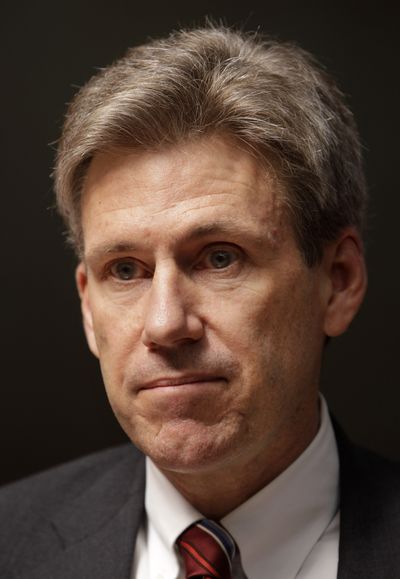Security offered, pair claim
Ambassador killed in Libya turned it down, officials say

CAIRO – In the month before attackers stormed U.S. facilities in Benghazi and killed four Americans, U.S. Ambassador Christopher Stevens twice turned down offers of security assistance made by the senior U.S. military official in the region in response to concerns that Stevens had raised in a still-secret memorandum, two government officials told McClatchy.
Why Stevens, who died of smoke inhalation in the first of two attacks that took place late Sept. 11 and early Sept. 12, 2012, would turn down the offers remains unclear. The deteriorating security situation in Benghazi had been the subject of a meeting that embassy officials held Aug. 15, where they concluded they could not defend the U.S. diplomatic compound in Benghazi. The next day, the embassy drafted a cable outlining the dire circumstances and saying it would spell out what it needed in a separate cable.
“In light of the uncertain security environment, US Mission Benghazi will submit specific requests to US Embassy Tripoli for additional physical security upgrades and staffing needs by separate cover,” said the cable, which was first reported by Fox News.
Army Gen. Carter Ham, then the head of the U.S. Africa Command, did not wait for the separate cable, however. Instead, after reading the Aug. 16 cable, Ham phoned Stevens and asked if the embassy needed a special security team from the U.S. military. Stevens told Ham it did not, the officials said.
Weeks later, Stevens traveled to Germany for an already-scheduled meeting with Ham at AFRICOM headquarters. During that meeting, Ham again offered additional military assets, and Stevens again said no, the two officials said.
“He didn’t say why. He just turned it down,” a defense official, who asked not to be identified because of the sensitivity of the subject, told McClatchy.
The offers of aid and Stevens’ rejection of them have not been revealed in either the State Department’s Accountability Review Board investigation of the Benghazi events or during any of the congressional hearings and reports that have been issued into what took place there.
Stevens’ deputy, Gregory Hicks, who might be expected to be aware of the ambassador’s exchange with military leaders, was not asked about the offer of additional assistance during his appearance before a House of Representatives committee last week, and testimony has not been sought from Ham, who is now retired.
Both Hicks and Ham declined to comment on the exchange between Ham and Stevens. Hicks’ lawyer, Victoria Toensing, said Hicks did not know the details of conversations between Stevens and Ham and was not aware of Stevens turning down an offer of additional security.
“As far as Mr. Hicks knows, the ambassador always wanted more security and they were both frustrated by not getting it,” she said.
Some Republican lawmakers expressed surprise when told that Stevens had turned down such an offer.
“That is odd to me because Stevens requested from the State Department additional security four times, and there was an 18-person special forces security team … that Gen. Ham signed off on that the State Department said no to,” said Sen. Lindsey Graham, R-S.C., who has been among the most vocal critics of the Obama administration on Benghazi. “The records are very clear that people on the ground in Libya made numerous requests for additional security that were either denied or only partially granted.”